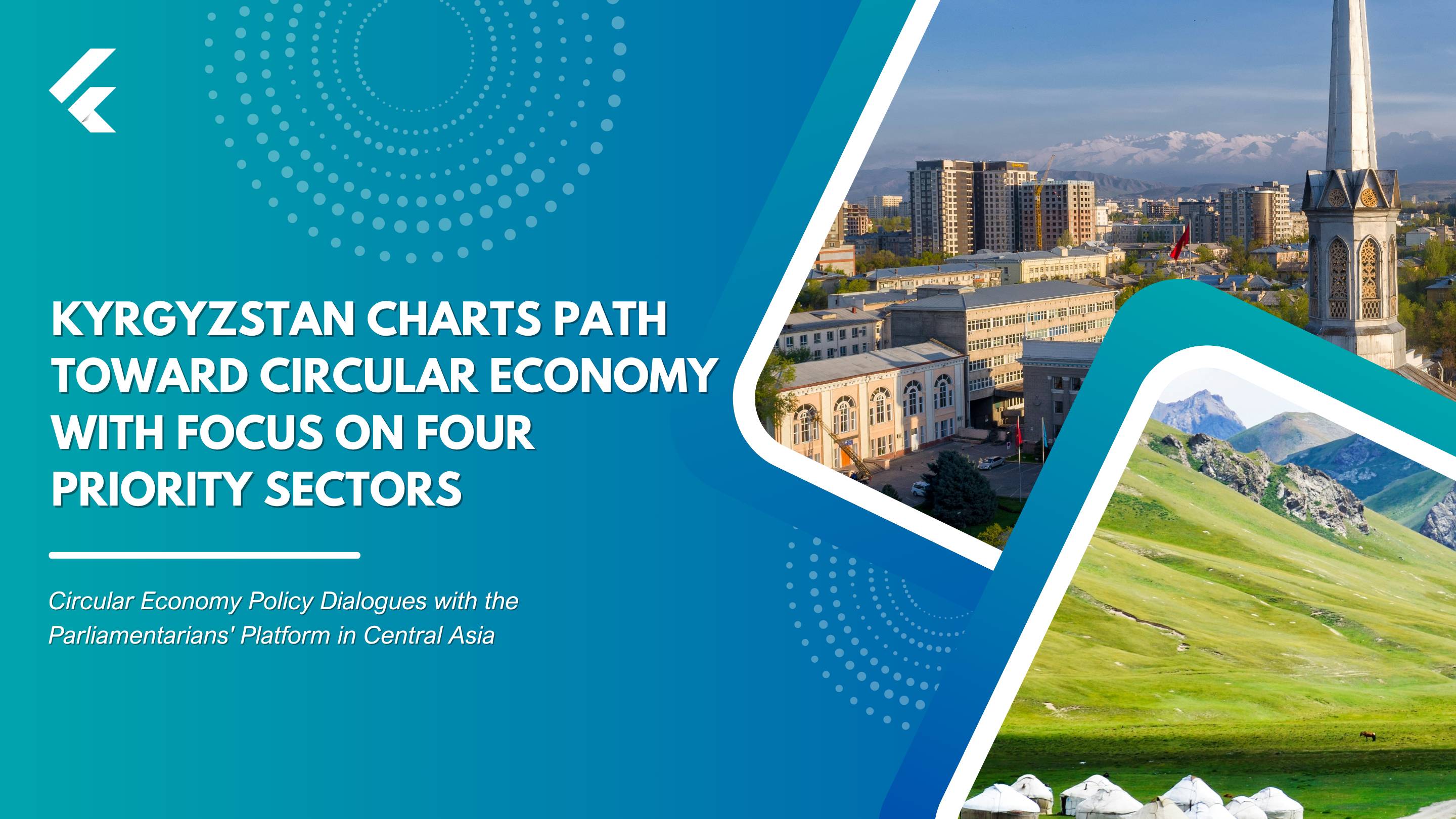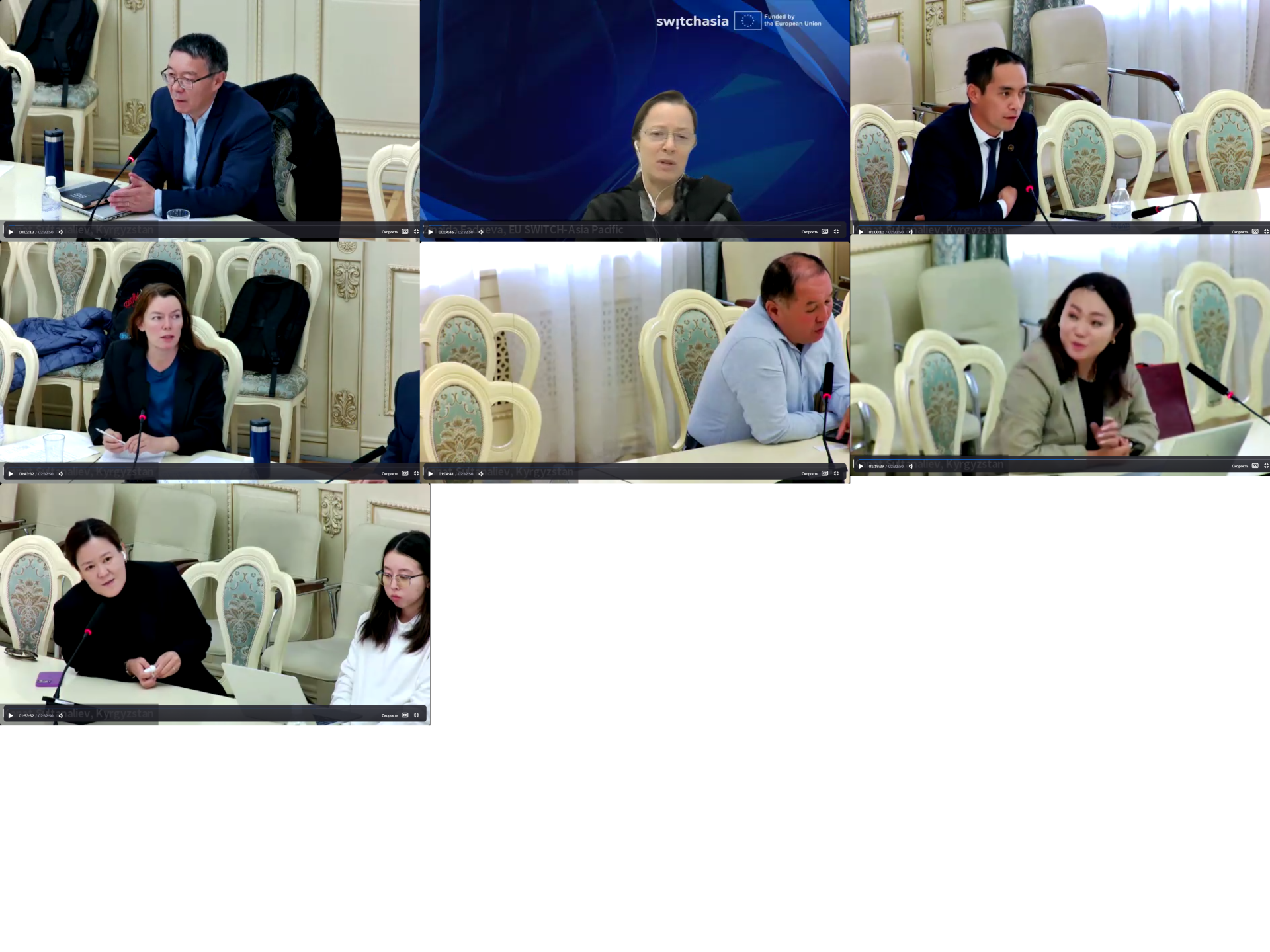
On 2 October 2025, Government officials, international organizations, and circular economy experts convened in Bishkek at the Ministry of Economy to advance Kyrgyzstan's transition toward a circular economy model, identifying clear priorities and an implementation roadmap.
The working discussion, held within the framework of the "Circular Economy Policy Dialogues with the Parliamentarians' Platform in Central Asia" project implemented by the EU SWITCH-Asia Programme and CAREC, brought together representatives from the Ministry of Economy, Ministry of Agriculture, Department of Tourism, UNDP, and an international expert on Extended Producer Responsibility.
Four Sectors Take Center Stage
Participants unanimously confirmed textiles, construction, tourism, and agri-food as Kyrgyzstan's priority sectors for circular economy development. Each sector presents unique opportunities and challenges:
Construction's Remarkable Growth
The construction sector has surged by 63% in the first half of 2025. Rather than pursuing traditional linear expansion, participants emphasized redirecting this momentum toward material reuse, recycling, and designing for circularity from the outset.
Tourism's Untapped Potential
Svetlana Kalchakeyeva from the Department of Tourism highlighted critical infrastructure gaps, particularly regarding waste data collection and accommodation capacity. With tourist flows from China expected to increase significantly, the region, especially around Issyk-Kul, needs differentiated market planning that accounts for various accommodation types and robust waste management systems during peak seasons.
Agriculture: From Waste to Opportunity
A representative from the Ministry of Agriculture pointed to serious environmental challenges stemming from wool processing and livestock waste management. The discussion revealed a compelling synergy: tourists could serve as a distribution channel for local organic products, while organic farming certification could enhance Kyrgyzstan's appeal in sustainable tourism markets and export opportunities.
During the discussion, Uran Chekirbaev proposed broadening the focus from food specifically to agriculture as a whole, noting that resource inefficiency is concentrated at the production level. However, participants concluded that maintaining the food component focus enables more tangible short-term results, particularly in reducing losses and waste.
Building on What Works
A key theme emerged around integration rather than duplication. Participants cautioned against creating parallel systems, advocating instead for embedding circular economy principles within Kyrgyzstan's existing "green economy" programmes.
At Chekirbaev's initiative, the group explored the relationship between green and circular economies, concluding that the circular economy should complement rather than compete with ongoing green economy efforts. The consensus: establish clear distinctions while ensuring the concepts work in tandem.
Furthermore, stakeholders working on climate policy warned against overloading core legislation with too many new concepts simultaneously. Baktygul Ysabekova from UNDP noted that circular economy implementation, like the green economy transition, requires years of sustained effort. She explained that parliamentarians have already begun internal dialogues with ministries about integrating circular economy principles into the draft Law on Climate Activity, a topic that entered the policy agenda unexpectedly but has quickly gained traction.
The proposed approach is to begin with a comprehensive circular economy framework policy establishing vision, principles, roles, and coordination mechanisms, then introduce specific instruments through secondary legislation after piloting.
Green Public Procurement as a Lever
Omurbek Kenzhebaev from the Ministry of Economy emphasized the circular economy agenda's relevance for Kyrgyzstan in his opening remarks. By the discussion's conclusion, he expressed strong interest in joining the regional Green Public Procurement initiative, identifying it as a practical tool for implementing circular economy principles. Steps in this area, supported by changes in budget classification, were highlighted as important leverage points. Omurbek Kenzhebaev also expressed interest in learning from Turkey's experience, particularly regarding how contributions are organized to support the Zero Waste Fund.
Four Benchmarks for Success
Local discussions converged on four key principles for designing Kyrgyzstan's national circular economy framework:
- Alignment instead of duplication: Build on existing national strategies and avoid overlapping green economy instruments
- Stepwise legislation: Define the framework first, then expand existing instruments such as Extended Producer Responsibility to additional sectors, and public procurement to include stronger green criteria - while introducing new circular economy indicators through bylaws after piloting
- Sectoral focus: Prioritize the four key sectors with targeted measures including design standards, secondary raw material utilization, separate waste collection, support for repair and remanufacturing, and green procurement criteria
- Competencies and data: Invest in monitoring, reporting, and verification systems, improve waste and tourism data collection, and provide business incentives through finance, tax breaks, and permits to transform concepts into jobs and economic opportunities
Looking Ahead
The outcomes from this Bishkek discussion will feed into the 2nd Regional Parliamentary Dialogue on Circular Economy scheduled for Almaty on 13-14 October 2025. A draft Regional Circular Economy Framework Programme will be prepared by December 2025 for consultations, with an official launch planned at the Central Asia Environmental Summit in April 2026.
Next Steps
Following the meeting, several concrete actions are underway:
- The Ministry of Economy is considering submitting a formal request to participate in the regional Green Public Procurement programme
- SWITCH-Asia experts will provide a concept note clarifying the interlinkages between green and circular economies
- A summary paper will be prepared on Turkey's Zero Waste Fund contribution mechanisms
- Further work is expected on sectoral reports, particularly tourism with its food component, and discussions on framework provisions at the national level
As Kyrgyzstan positions itself within the broader Central Asian context, the emphasis remains clear: practical implementation over theoretical frameworks, integration over duplication, and measured progress aligned with the country's development priorities.



